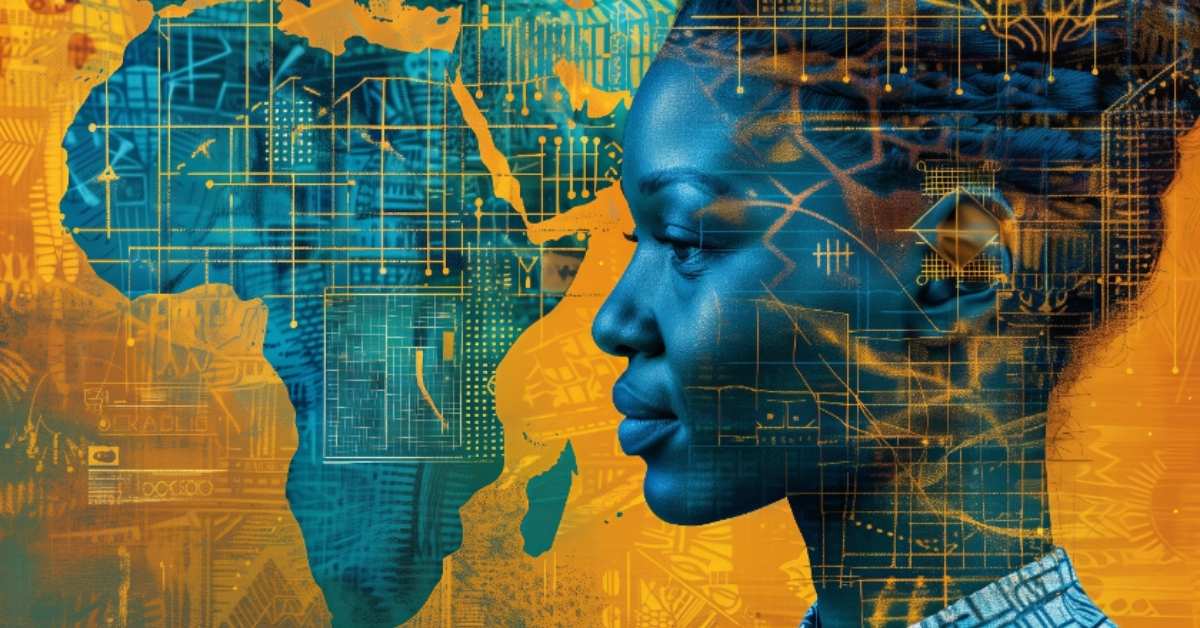By Editor
Copyright iafrica

In our recent iAfrica feature, ŌĆ£Why AfricaŌĆÖs Youth Could Redefine the Global AI Future,ŌĆØ we explored the immense potential of AfricaŌĆÖs young population to shape the AI revolution, while highlighting barriers like limited investment and infrastructure. Sir Roger Jantio, Senior Managing Director & CEO of Sterling Merchant Finance Ltd, challenges this narrative with a bold, optimistic vision in his response below. He argues that AfricaŌĆÖs perceived limitations are actually strategic advantages, positioning its youth to lead through creativity, local expertise, and democratized AI tools. This piece reframes the conversation and invites us to rethink AfricaŌĆÖs role in the global AI landscape.
A Response to ŌĆ£Why AfricaŌĆÖs Youth Could Redefine the Global AI FutureŌĆØ
The recent article at iAfrica.com on AfricaŌĆÖs AI potential makes a compelling case in its title but stumbles in its reasoning. While I wholeheartedly agree that AfricaŌĆÖs youth will redefine the global AI future, the evidence presentedŌĆölimited investment, minimal computing resources, and underrepresented languagesŌĆöactually paints a gloomy picture of AfricaŌĆÖs ability to become an AI player. The real story is far more exciting and fundamentally different.
The Infrastructure Trap: Why Not Competing is AfricaŌĆÖs Advantage
The original article laments that Africa receives only 0.3% of global AI investment and possesses just 5% of world computing resources. But this misses the point entirely. Building AI infrastructure is extraordinarily expensive, risky, and increasingly resembles a speculative bubble.
Consider the staggering investments being made: the United States is pouring hundreds of billions into AI infrastructure, China is making massive state investments, and individual companies like Microsoft, Google, and OpenAI are each spending tens of billions annually. The EconomistŌĆÖs recent cover story (September 12, 2025) highlights a $3 trillion AI investment wave sweeping the globe. These are infrastructure bets of unprecedented scale, with uncertain returns and high failure risks.
Africa doesnŌĆÖt need to compete in this infrastructure arms raceŌĆöand thatŌĆÖs precisely its advantage. Why spend billions building what others are already creating, especially when the end result will be accessible globally at minimal cost?
The Democratization Revolution: When Innovation Costs Plummet
HereŌĆÖs where the real transformation lies. In groundbreaking research conducted by HarvardŌĆÖs Digital Data Design Institute (D┬│) and MIT, Jackie Lane, Assistant Professor in the Technology and Operations Management Unit at Harvard Business School and co-Principal Investigator of the Laboratory for Innovation Science at Harvard (LISH), has demonstrated that AI has reduced the cost of innovation by a thousand times.
This isnŌĆÖt a marginal improvementŌĆöitŌĆÖs a complete paradigm shift. When innovation becomes nearly free, the playing field doesnŌĆÖt just level; it inverts. Suddenly, creativity, problem-solving ability, and local market knowledge matter more than access to expensive computing infrastructure.
AfricaŌĆÖs True Demographic Dividend
The original article mentions AfricaŌĆÖs young population but fails to connect it to the real opportunity. With over 60% of AfricaŌĆÖs population under 25, the continent will have the worldŌĆÖs largest cohort of digital natives coming of age precisely when AI tools are becoming universally accessible.
Unlike previous technology waves that required massive capital investments, AI democratization means that even if only 1% of AfricaŌĆÖs youth master AI tools and applications, they represent a formidable force of innovation. These young innovators can access the same computational power as their counterparts in Silicon Valley, but with the advantage of understanding local challenges and markets that global players often miss.
The Fintech Preview: AfricaŌĆÖs Innovation Playbook
WeŌĆÖre already seeing this dynamic play out in financial technology. African innovators didnŌĆÖt build global banking infrastructureŌĆöthey leapfrogged it. M-Pesa in Kenya, Flutterwave in Nigeria, and countless other fintech innovations emerged not despite AfricaŌĆÖs infrastructure limitations, but because of them. These solutions are now being exported globally, with African fintech companies expanding to Europe, Asia, and the Americas.
AI represents the same opportunity, but at a much larger scale. African developers can now build AI-powered solutions for agriculture, healthcare, education, and governance without needing to invest in massive computing infrastructure. They can leverage the $3 trillion in AI investments being made by others while focusing on application and innovation.
The Piggyback Strategy: Learning from AsiaŌĆÖs Playbook
This approach isnŌĆÖt unprecedented. Thirty years ago, China and India didnŌĆÖt build the global internet infrastructureŌĆöthey leveraged what others had created and focused on applications and services. China became an e-commerce giant by building on top of existing internet protocols, while India became the worldŌĆÖs IT services hub by utilizing global telecommunications infrastructure.
AfricaŌĆÖs AI strategy should follow a similar path: let others bear the massive infrastructure costs and risks, then leverage their investments to build locally relevant, globally competitive solutions.
Why AI Benefits Africa More
The democratization of AI disproportionately benefits regions with young, educated populations who face resource constraintsŌĆöexactly AfricaŌĆÖs profile. While developed countries must navigate complex legacy systems and regulations, African innovators can build AI-native solutions from scratch.
Moreover, many of AfricaŌĆÖs challengesŌĆöfrom agricultural optimization to healthcare delivery in remote areasŌĆöare precisely the kinds of complex, data-rich problems that AI excels at solving. African developers working on these challenges arenŌĆÖt just serving local markets; theyŌĆÖre developing solutions that will be valuable globally as similar challenges emerge elsewhere.
The Real Competitive Advantage
AfricaŌĆÖs competitive advantage in AI isnŌĆÖt its infrastructure or investment levelsŌĆöitŌĆÖs the combination of pressing real-world problems, a large population of young innovators, and increasingly universal access to AI tools. This creates a perfect storm for innovation.
As The EconomistŌĆÖs recent analysis suggests, if AI delivers on its promise of explosive economic growth, those with foresight to position themselves effectively will reap extraordinary benefits. AfricaŌĆÖs youth, unencumbered by legacy systems and infrastructure investments, are uniquely positioned to ride this wave.
Conclusion: The Real AI Revolution
The question isnŌĆÖt whether Africa can compete in the AI infrastructure raceŌĆöitŌĆÖs whether African innovators can leverage othersŌĆÖ infrastructure investments to build the next generation of AI applications and solutions. The evidence suggests they already are.
Rather than lamenting AfricaŌĆÖs limited AI investment, we should celebrate its strategic position. While others spend trillions on risky infrastructure bets, AfricaŌĆÖs youth are preparing to inherit the most democratized, accessible AI tools in history. Combined with the continentŌĆÖs demographic advantages and pressing local challenges, this creates an unprecedented opportunity for innovation and global leadership.
AfricaŌĆÖs youth wonŌĆÖt redefine global AI despite their current limitationsŌĆötheyŌĆÖll do it because those limitations have positioned them perfectly for the AI-democratized world thatŌĆÖs emerging.
By Sir Roger Jantio, Senior Managing Director & CEO, Sterling Merchant Finance Ltd, Washington, DC
Sir Roger JantioŌĆÖs bold vision challenges us to see AfricaŌĆÖs AI future not as a race to catch up, but as a chance to lead with ingenuity and purpose. What do you think, can AfricaŌĆÖs youth truly redefine global AI by leveraging democratized tools and local expertise? We want to hear your perspective! Join the conversation by sharing your thoughts or submitting your own response to editor@africa.com.



